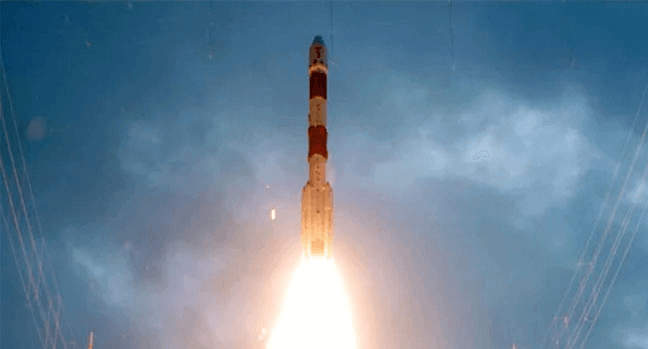The Indian Space Research Organisation (ISRO) is gearing up to resume its orbital launches with multiple programmes slated for November and December 2020.
Why Indian, Jewish Community In The US Will Be Rooting For Biden But Voting For Trump?
The agency is planning to launch the new Small Satellite Launch Vehicle (SSLV) on its first test flight before December. SSLV will help ISRO to launch lighter satellites conveniently, and the vehicle has the capability to be put together in a week’s time.
Also in the pipeline is ISRO’s first satellite launch in 2020, which had been delayed due to the Covid-19 pandemic since February this year. To be launched using PSLV-C49, the launch vehicle will carry an advanced earth observation satellite Risat-2BR2 to boost surveillance capability of India’s borders.
The satellite can operate day-&-night and has the capability to operate in all weather conditions. India is currently involved in an intense stand-off with China at the Ladakh border and this satellite is expected to greatly assist the armed forces in surveillance along the LAC. PSLV-C49 will also carry 10 foreign commercial satellites.
Another crucial launch for the agency will be the ground landing test of its Reusable Launch Vehicle (RLV) by the end of this year, which has been pending owing to the pandemic situation. The first test of the RLV, dubbed as India’s own space shuttle, was successfully conducted in 2016 when it demonstrated the critical technologies such as autonomous navigation, guidance & control, reusable thermal protection system and re-entry mission management.
The new test will demonstrate the launch vehicle’s landing capability after it is released using a helicopter from a height of about four kilometres. The RLV will glide and navigate towards an airfield in Chitradurga district deploying its parachute.
The RLV is one of the most technologically challenging endeavours of ISRO towards developing essential capabilities for a fully reusable launch vehicle to enable low-cost access to space.

The year 2020 brought the whole world to a standstill with the spread of Covid-19 pandemic, with most human activities coming to a complete halt. The year has been no different for India’s premier space agency, with a number of its crucial projects hanging fire.
ISRO has been innovating space technologies for years like clockwork and the slightest delay can mean a huge loss for an organisation that has expanded its business across the world.
One of the most important recent projects for ISRO has been the human spaceflight mission, originally slated to launch by August 2022. The mission, called Gaganyaan, will be India’s first attempt at sending a crewed mission into space, with a few international collaborations.
ISRO chief K. Sivan said the mission will now be delayed due to impact on operations as a result of the pandemic affecting the operations.
The August 2022 launch date for the Gaganyaan mission was announced by India’s Prime Minister Narendra Modi himself, during his Independence Day speech in 2018. The mission is critical for India as it will usher in a new dawn for space capabilities for the country, and will involve sending astronauts to a low earth orbit.
The mission astronauts are currently being trained by Russia, with France helping in space medical area and the agency is also approaching NASA, as per reports.
The test launch of the Reusable Launch Vehicle will also be an important milestone for the premier space agency. The reusable launch vehicles have been popularised by SpaceX, the US private space agency headed by Elon Musk.
SpaceX pioneered the reusable tech almost a decade ago, helping to reduce launch costs significantly, which has also resulted in the company being the number one choice for satellite launches across the world. India’s ISRO too is inching in that direction, having pioneered cost-effective space launches decades ago.
The next big challenge for the space agency will be successfully conducting the human spaceflight, sending a manned mission to space for the first time. This will be an entirely new domain for ISRO since it will involve supporting human life onboard the craft and a lot of other technologies.
The agency is reportedly involving private firms in developing indigenous technologies for future human spaceflight programmes.




